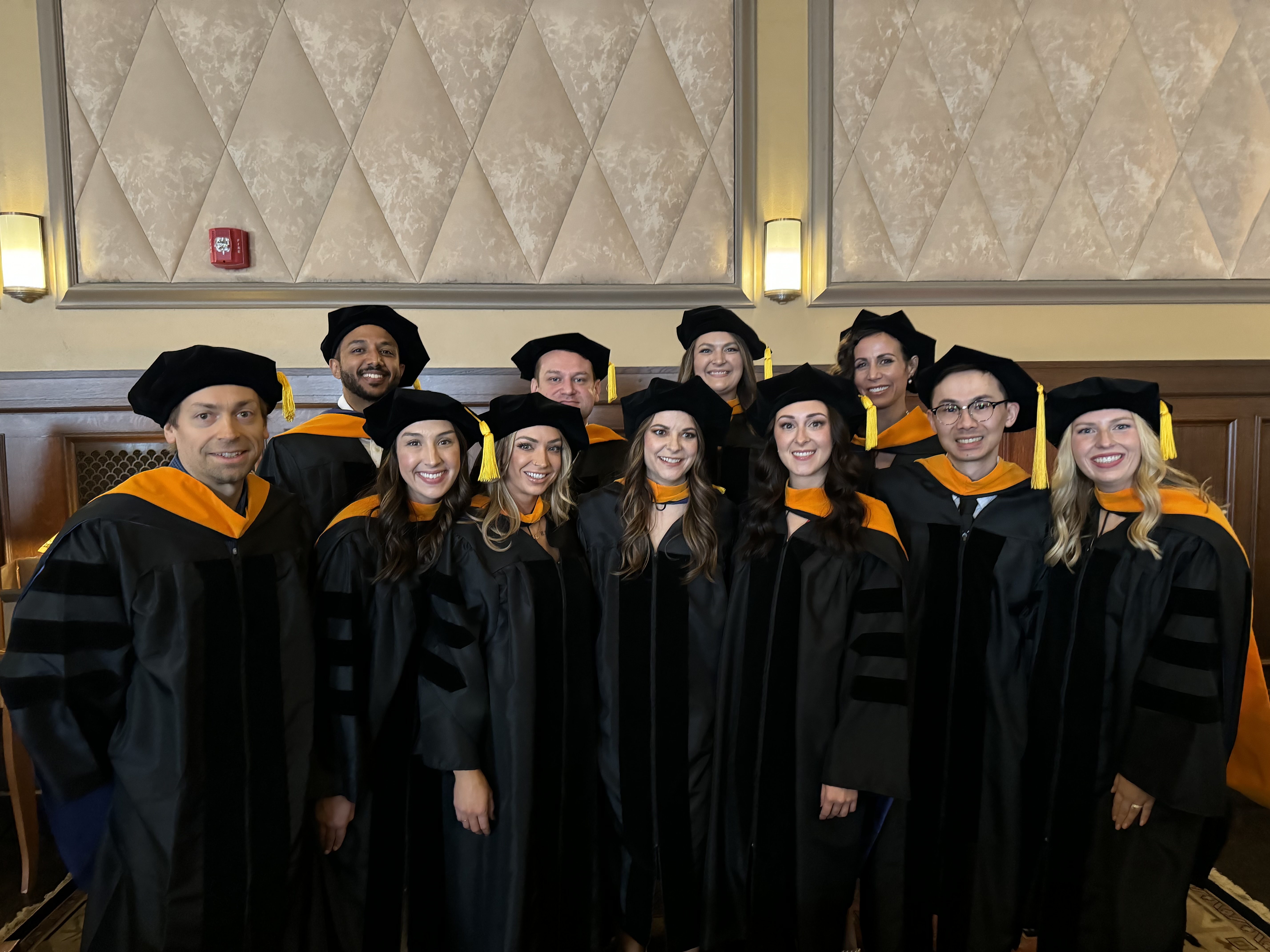Best Nursing-Anesthesia (CRNA) Schools

Goldfarb's CRNA program has been ranked #11 by U.S. News & World Report as part of the "Best Grad Schools" 2024 rankings. Based on a survey of academics at peer institutions, this achievement signifies that we are among the top nursing anesthesia programs in the country. Learn more here.
Concentration Overview
The Nurse Anesthesia Program awards a Doctor of Nursing Practice (DNP) degree with a Concentration in Nurse Anesthesia. The doctoral degree for nurse anesthetists allows nurses to join professions from medicine to dentistry and physical therapy who also obtain doctoral degrees. The nurse anesthesia program is full-time, 36 months in length, and includes coursework and clinical experiences. Due to the rigor of the program, students are encouraged not to work while enrolled in the program. Graduates of this degree will be prepared to become Certified Registered Nurse Anesthetists with a full scope of practice who will be prepared to administer anesthesia to patients throughout their lifespan from newborns to the elderly, no matter how sick or healthy.
Concentration Highlights
The DNP: Nurse Anesthesia concentration stands apart for many reasons. Here are just a few of the attributes that make us unique:
Intimate Learning Environment
Small classes and one-on-one interaction with faculty provide an ideal learning environment. Our curriculum, taught by faculty who are practicing CRNAs and anesthesiologists in the Department of Anesthesiology at Washington University School of Medicine, includes multiple nurse anesthesia courses, core nursing courses of evidence-based practice, health policy, and ethics, as well as an anatomy course with a semester-long dissection of cadavers.
World-Class Clinical Simulation Institute
You’ll implement your classroom knowledge with clinical scenarios and skills labs through our Clinical Simulation Institute. Simulation is routinely used throughout the program to teach, train and ultimately empower our students with the full range of anesthetic procedures and equipment. Simulation is also used to help prepare the student on how to manage complications in the surgical patient and to build critical thinking skills. Scenarios include adult, pediatric obstetric, trauma, and gerontologic patients across the lifespan.
Learn More Here!
Clinical Training at Top Institutions
You’ll have an opportunity to fulfill your clinical training through affiliations with the region’s top institutions at Barnes-Jewish Hospital, Barnes West County, St. Louis Children's, Children's Specialty Care Center, Progress West Hospital, Missouri Baptist Medical Center and Shriners Children's.
Exceptional Outcomes
Historically, our employment rate before graduation has always been 100%, our certification examination pass rate is exceptional, and our attrition rate remains low. The overall first-time certification examination pass rate since the program began in 2004 is 95.12%(100% for last year’s graduates), the overall certification examination pass rate, including second attempt, is 100%, and the overall attrition rate since the program began is 1.60% (Attrition rate since 2010 is zero).
Career Prospects
Our graduates are prepared to enter a high-demand profession. Certified Registered Nurse Anesthetists have a variety of employment options following certification such as teaching hospitals, community hospitals, surgery centers, clinics, and small, critical-access hospitals. Our program is aimed at making the transition to one of these settings as seamless as possible. Our program focuses on providing anesthesia to very sick patients, but it also includes healthy patients. The program also helps develop strong leadership qualities. Many of our graduates have become CRNA leaders in their profession.
Learn more about our application process here.
Accreditation
The Nurse Anesthesia Concentration at Goldfarb School of Nursing at Barnes-Jewish College is accredited by the Council on Accreditation of Nurse Anesthesia Educational Programs (COA).The program's next review by the COA is scheduled for October, 2025.
Council on Accreditation of Nurse Anesthesia Educational Programs (COA)
- 10275 W. Higgins Rd, Suite 906 / Rosemont, IL 60018-5603
- Phone: (224) 275-9130
- Website: https://www.coacrna.org/
- Email: [email protected]
To find a list of COA accredited programs, visit https://coacrna.org.
Goldfarb School of Nursing at Barnes-Jewish College is accredited by the Higher Learning Commission (HLC) and by the Commission on Collegiate Nursing Education (CCNE).
Graduates of the Nurse Anesthesia Concentration will be prepared to take the National Certification Examination given by the National Board on Certification and Recertification of Nurse Anesthetists (NBCRNA) to become certified in the field.
Reputation
- Accredited by the International Federation of Nurse Anesthetists (IFNA).
- Accredited by the International Federation of Nurse Anesthetists since 2014
- 2023 attrition rate: 0
- Low overall attrition rate: 1.60%
- Employment rate: 100% prior to graduation since 2006
- 2023 first attempt pass rate: 100%
- Overall certification exam pass rate on first attempt: 95.12%
- Overall certification exam pass rate on second attempt: 100%
- Small class sizes
- Strong academic courses
- High-fidelity mannequin in a simulated OR that is used weekly
- Graduate anatomy course that uses cadavers
- Strong clinical experience at level one hospitals, including Barnes-Jewish Hospital and Children's Hospital
- Experienced faculty who maintain clinical practice
- Anesthesia courses that are taught in-person
- Feeling a part of the team of Anesthesia providers
Faculty
Bernadette Henrichs, PhD, CRNA, CCRN, CHSE, FAANA, FAAN
Office: 314.454.8910
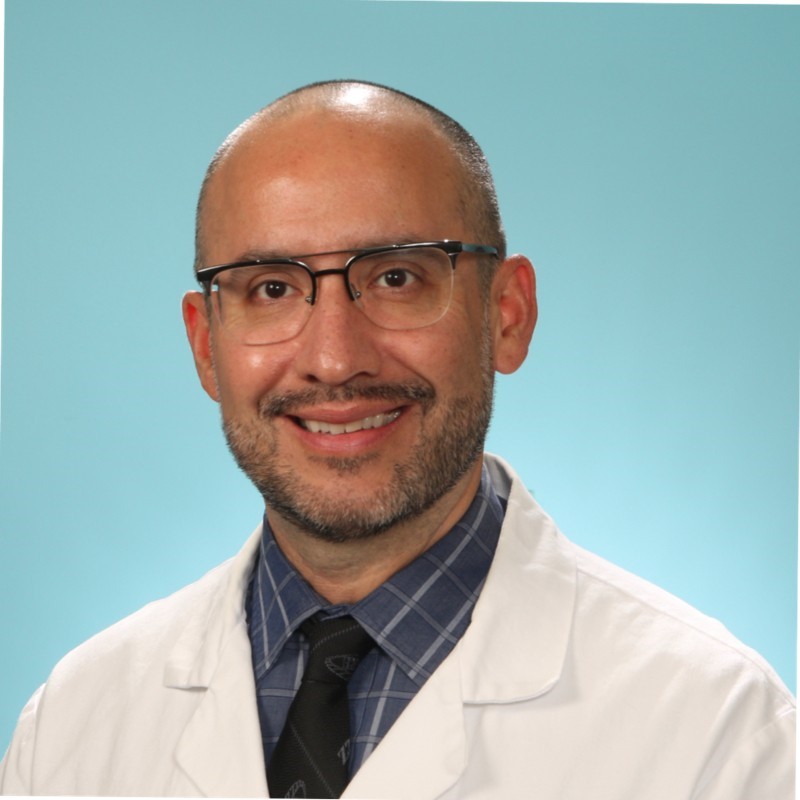
Brian Torres, DNP, CRNA
Office: 314-454-7533
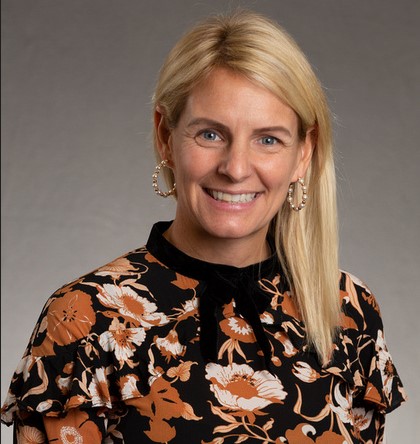
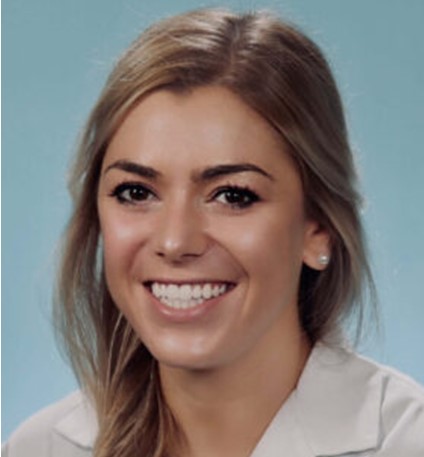

Robert P. Walsh, MBA, Ph.D, CRNA
Sample Course Sequence
NOTE: Courses and sequencing are subject to change
| SPRING TERM | |
| Biostatistics and Epidemiology | 3 |
| Health Promotion Theory and Population Health | 3 |
| Foundations of Scholarly Writing & EBP | 3 |
| Advanced Pharmacology | 3 |
| SUMMER TERM | |
| Chemistry & Physics Applied to Anesthesia | 4 |
| Health Systems Policy | 3 |
| Leadership and Collaboration for Quality and Safety | 3 |
| Informatics, Economics and Financial Principles | 3 |
| FALL TERM | |
| Graduate Anatomy | 6 |
| Graduate Physiology | 4 |
| DNP Basic Principles of Anesthesia #1 | 2 |
| DNP Advanced Health Assessment for Nurse Anesthesia | 3 |
| SPRING TERM | |
| Advanced Pathophysiology | 4 |
| DNP Basic Principles of Anesthesia #2 | 3 |
| DNP Advanced Pharmacology and Anesthesia | 3 |
| Systems-Based Practice and DNP Project I | 3 |
| SUMMER TERM | |
| DNP Advanced Principles of Anesthesia #1 | 3 |
| DNP Clinical Experience I | 3 |
| Systems-Based Practice and DNP Project II | 3 |
| FALL TERM | |
| DNP Advanced Principles of Anesthesia #2 | 3 |
| DNP Clinical Experience II | 3 |
| Systems-Based Practice and DNP Project III | 3 |
| SPRING TERM | |
| DNP Clinical Correlation Seminar | 1.5 |
| DNP Professional Aspects of Nurse Anesthesia | 3 |
| DNP Clinical Experience III | 4 |
| DNP Project (Optional if project not completed) | 1 |
| SUMMER TERM | |
| DNP Clinical Correlation Seminar | 1.5 |
| Clinical Experience IV | 5 |
| FALL TERM | |
| DNP Clinical Correlation Seminar | 1.5 |
| DNP Clinical Experience V | 5 |
| TOTAL | 92.5 |
Admission Requirements
The following items are required when applying to the Nurse Anesthesia Concentration:
- Baccalaureate or Master’s Degree in Nursing from a regionally accredited college or university (NLNAC or CCNE)
- Minimum cumulative grade point average of 3.0 on a 4.0 scale in all undergraduate and graduate coursework
- Official transcripts for all undergraduate and graduate coursework
- Two letters of reference from individuals who can address the applicant’s academic and clinical potential
- Curriculum vitae (CV) or resume
- Current unencumbered, unrestricted Missouri licensure as a Registered Nurse or a multi-state compact license and in good standing.
- Prerequisites (undergraduate or graduate, 3 credit hours each and satisfactory grade)
- Physics (algebra-based)
- Organic Chemistry or Biochemistry
- Undergraduate or Graduate Statistics
- Anatomy and Physiology (most likely taken in undergraduate nursing)
- A personal statement addressing why you want to become a CRNA
- A minimum of one year of recent critical care nursing experience as a Registered Nurse in a critical care setting in the United States, its territories, or a U.S. military hospital outside of the U.S
- Highest priority is given to those who have the most recent work history in a high acuity ICU setting where the applicant is likely to have a broad base of invasive hemodynamic monitoring experience, vasoactive drug administration, and experience monitoring patients on ventilators and adjusting settings. Applicants who work in post-anesthesia care units or emergency rooms will be considered only if the candidate can demonstrate that he/she routinely cares for patients with ventilators, invasive monitors, and vasoactive infusions.
- Current ACLS and BLS certification throughout enrollment; PALS before beginning clinical activities and throughout enrollment.
- If selected, an on-site interview by the Nurse Anesthesia Admissions Committee
- If an applicant has previously been enrolled in a nurse anesthesia program, he/she can apply; however, no anesthesia-specific courses will be transferrable
- Advanced Standing/Transfer Credit: Doctoral-level courses may be accepted for transfer only if approved by the Program Director and Faculty member. A maximum of (9) credits may be accepted for transfer and only those with an A or B may be transferred.
- International applicants should check with the Admissions Department for further instructions on admission requirements
- If accepted, there will be a $1000 non-refundable enrollment deposit for the CRNA program. This deposit amount is only for our CRNA program and is due to the competitive nature of this program.
Tuition and Fees
Barnes-Jewish College Goldfarb School of Nursing reserves the right to adjust tuition and fees at any time. For additional information, please contact our Business Office.
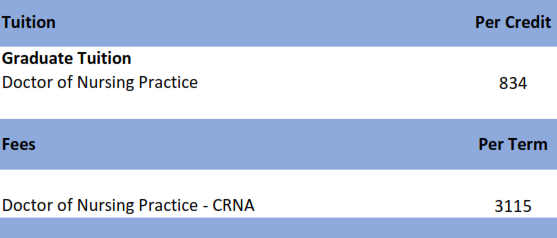
Request Information
Request information for DNP Nurse Anesthesia.

